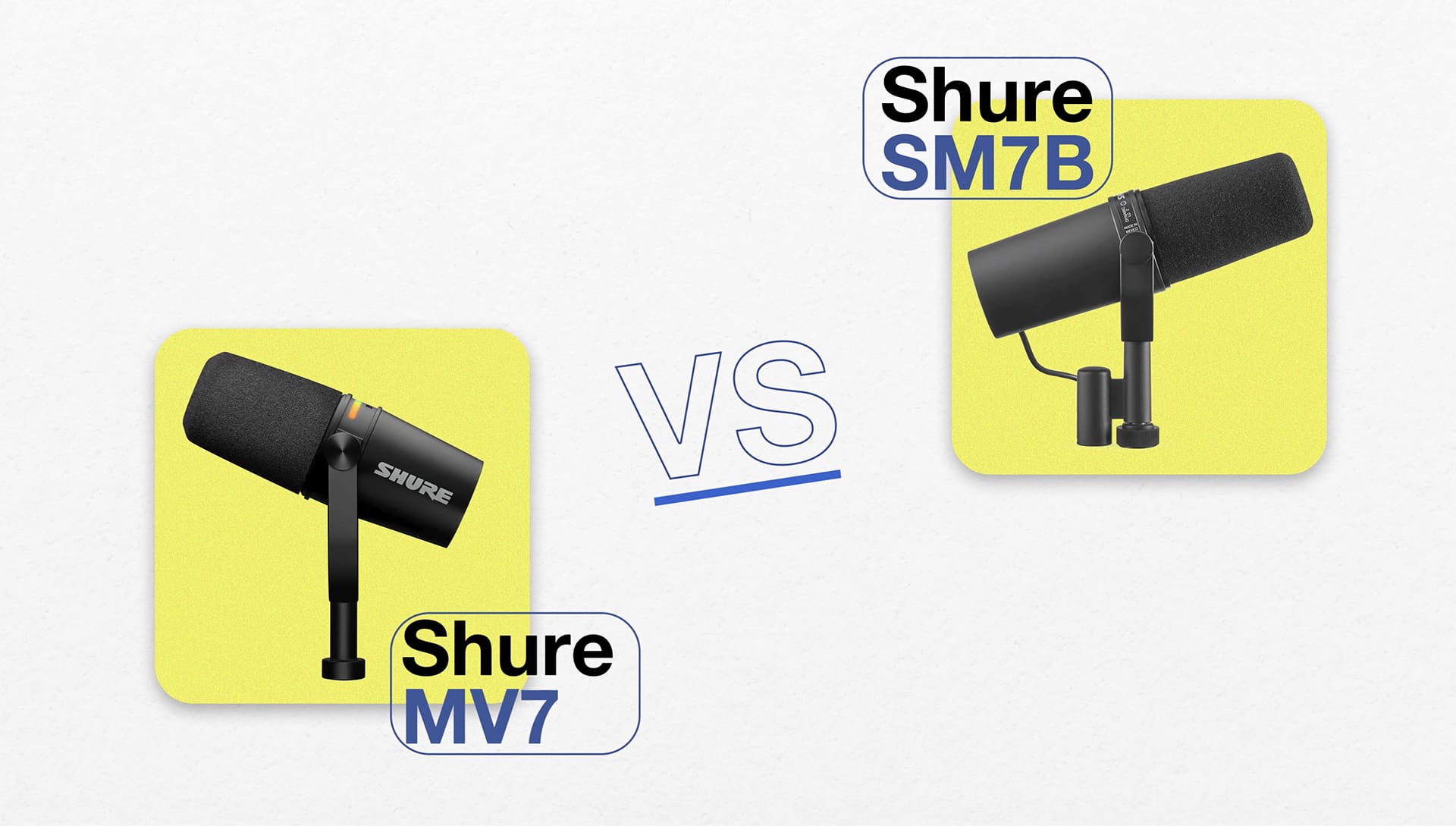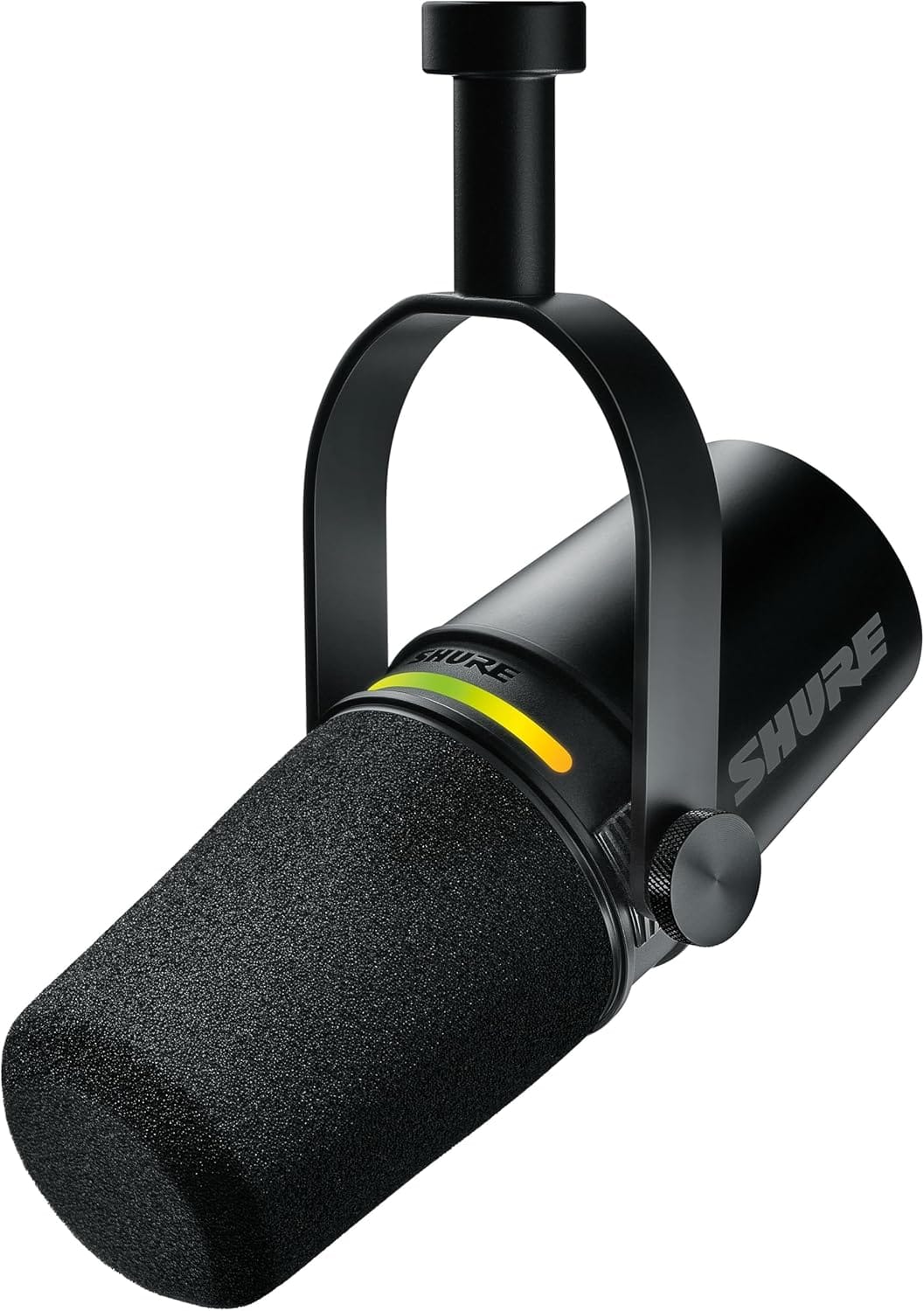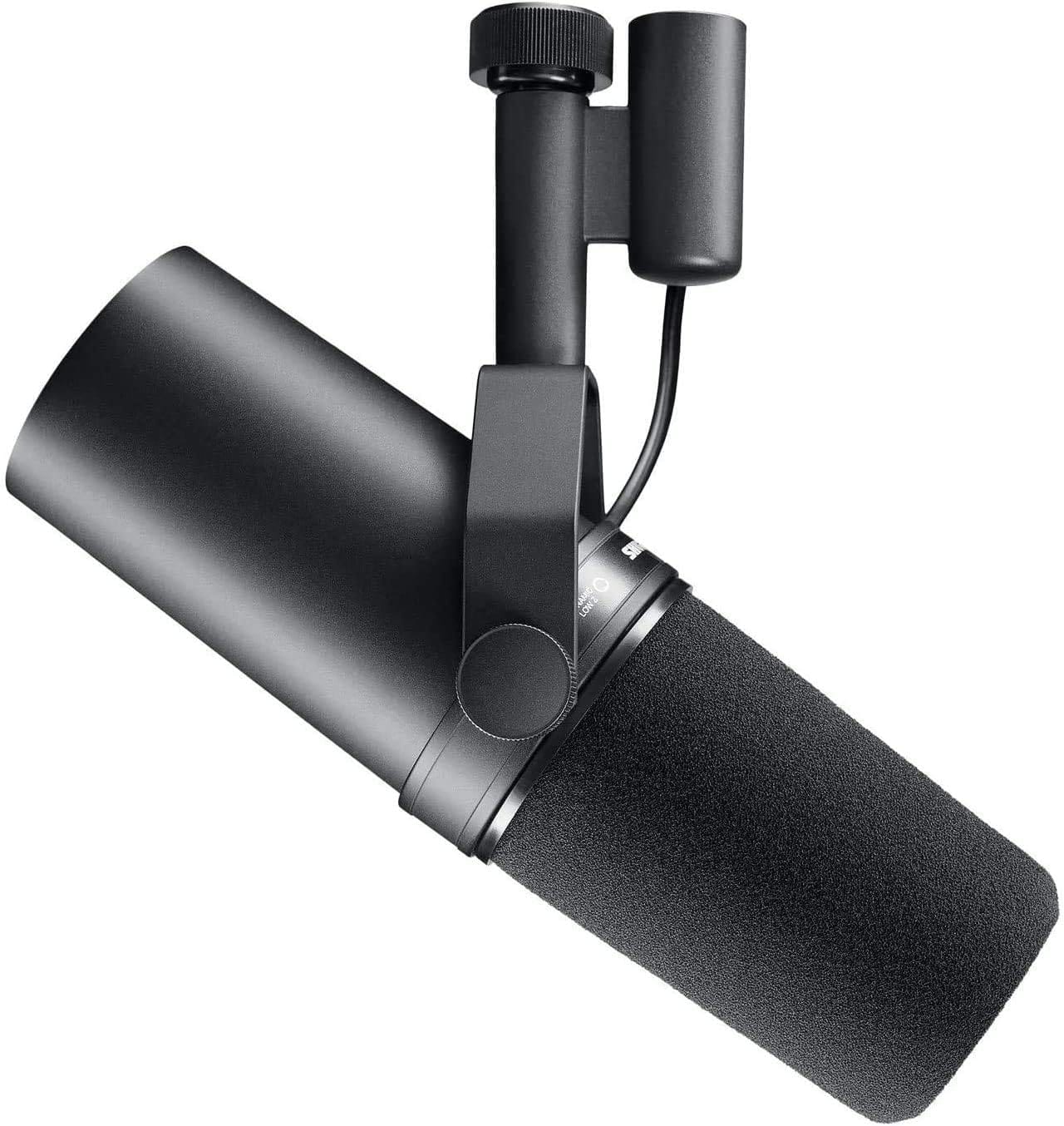
Choosing the right podcast microphone can make or break your show's success. After working on podcast production for some of the world's biggest creators—including Diary of a CEO, Ali Abdaal, Lewis Howes, and Colin and Samir - I've tested every microphone on the market. Here's everything you need to know about podcast microphones in 2024.
Why Most Podcast Microphone Reviews Are Wrong
The podcast equipment market has exploded, with hundreds of new microphones launching every year. Most reviews compare 7-15 different options, creating decision paralysis. After producing content for creators who've built million-dollar businesses around their voices, I can tell you there are really only two microphones that matter.
The Three Categories Most Mics Fall Into:
- Too Cheap - Sound like budget equipment (Samson Q2U, ATR2100x)
- Too Complicated - Require expensive additional equipment
- Too Niche - Solve problems you don't have
For 95% of podcasters: Shure MV7 ($280) - Professional sound, dual USB/XLR inputs, built to last
For established creators: Shure SM7B setup ($700-900 total) - Industry standard, but only a 5% sound improvement for 3x the cost
Skip the analysis paralysis. These are the only two microphones our clients use across 10+ channels with over 100,000 subscribers each.

Best Podcast Microphone for Beginners: Shure MV7
Price: $280
Best For: New and intermediate podcasters
Sound Quality: Professional broadcast quality
Ease of Use: Plug-and-play via USB
Why the MV7 Dominates Our Client Setups
The Shure MV7 strikes the perfect balance between professional sound quality and ease of use. Here's why we recommend it to 95% of our clients:
Key Features:
- Dual Input Options: USB for immediate use, XLR for future upgrades
- Built-in Processing: EQ and compression (though we recommend turning this off)
- Touch Controls: Easy gain adjustment without software
- Durability: Built like a tank, handles daily use and travel
- Professional Look: Camera-friendly design for video podcasts
MV7 Setup Guide (2 Minutes)
- Connect USB cable to your computer
- Adjust touch controls for optimal gain
- Position 6-8 inches from your mouth
- Download Shure software for advanced control (optional)
- Start recording professional-quality audio
Pro Tip: Turn off all internal processing (EQ, compression) and handle this in post-production. Once audio is processed by the microphone, you can't undo it.

Best Premium Podcast Microphone: Shure SM7B
Price: £339/$400 (microphone only)
Total Investment: $700-900 including required accessories
Best For: Established podcasters with dedicated recording spaces
Sound Quality: Industry standard (5% better than MV7)
The Hidden Costs of the SM7B
Most reviews don't mention that the SM7B requires additional equipment to function properly:
- Shure SM7B: £339/$400
- Cloudlifter CL-1: $150 (essential for proper gain)
- Audio Interface: $150-300 (Focusrite Scarlett or similar)
- XLR Cables: $20-50
- Boom Arm: $50-100
Total Investment: $700-900
When the SM7B Makes Sense
The SM7B is the microphone you hear on Joe Rogan, and it's used by our clients including Diary of a CEO, Colin and Samir, and Ali Abdaal. However, the sound improvement over the MV7 is marginal—maybe 5% for 3x the cost and complexity.
Choose the SM7B if:
- You're already profitable from podcasting
- Cost isn't a primary concern
- You want the most professional look on camera
- You have a dedicated, treated recording space
- You prefer no internal processing for maximum post-production control
The 3 Biggest Podcast Microphone Mistakes (And How to Avoid Them)
Mistake #1: Going Too Cheap
Microphones under $100 (Samson Q2U, ATR2100x) technically work but don't sound professional. When competing with thousands of podcasts, audio quality is your differentiator.
Mistake #2: Buying "Industry Standard" Without Understanding Real Costs
Everyone says "get the SM7B like Joe Rogan," but they don't mention the $300-500 in additional required equipment. The SM7B alone is useless without proper amplification.
Mistake #3: Obsessing Over Marginal Improvements
Here's the truth: your listeners can't hear the difference between great and amazing audio. Even as a professional with trained ears, the differences between premium microphones are subtle. Focus on content quality over equipment perfection.
Audio Processing: What Podcasters Need to Know
Essential Post-Production Steps
- High-Pass Filter: Cut frequencies below 80Hz to eliminate table noise and room rumble
- Compression: Keep quiet moments close to loud moments for consistent listening
- Noise Reduction: Use tools like Adobe Podcast AI or Descript (sparingly)
Mv7 vs SM7B Processing Differences
MV7: Has built-in EQ and compression (turn off for maximum flexibility)
SM7B: No internal processing, cleaner signal for post-production
Room Treatment Matters More Than Your Microphone
A $100 microphone in a well-treated room will always sound better than a $500 microphone in a hard, echoey space. Simple improvements:
- Add soft furnishings: Blankets, curtains, carpet
- Record in smaller spaces: Closets work great
- Use AI tools carefully: Adobe Podcast AI and Descript can help with reverb, but don't rely on them as magic fixes
Frequently Asked Questions
What microphone do the biggest podcasts use?
Our clients use primarily the Shure MV7 (starting/intermediate) and SM7B (established). Some have even moved to overhead microphones as they've grown.
Is the SM7B worth the extra cost?
For most podcasters, no. You're paying 3x more for approximately 5% better sound quality. The main benefits are aesthetics and no internal processing.
Can I start with USB and upgrade to XLR later?
Yes, the MV7's dual inputs make this seamless. Start with USB for simplicity, add an audio interface later for XLR if needed.
What about other popular microphones like the Rode PodMic?
Another solid budget mic but lacks a little of the low end of the others mentioned.
Watch Our Complete Microphone Comparison
For audio samples and detailed setup demonstrations, watch our complete video guide:
[Embed YouTube video]
Ready to Start Your Podcast?
Choosing the right microphone is just the first step. If you're serious about building a successful podcast, professional production can make the difference between a hobby and a business.
Our podcast production company has helped creators build:
- 10+ channels over 100,000 subscribers
- 4 channels over 1,000,000 subscribers
- Multi-million dollar businesses around their content
Learn About Our Podcast Production Services
About the Author
Richard Middleton is the founder of Longwave Digital, a leading podcast production company that manages content for some of the world's top creators including Diary of a CEO, Ali Abdaal, Lewis Howes, and Colin and Samir. With over 5 years of experience in podcast production and audio engineering, Richard has helped creators build audiences totaling over 1,000,000 subscribers.
Related Articles:
How To Grow Your Podcast With Social Media
- How To Grow Your Podcast With Social Media
- Creating Internal Podcasts
- Strategies for Podcast Promotion
